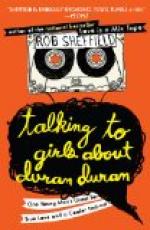there are quite a large number—really
go because they feel the need of such a service—not
because it is a parade and they must turn
out.
“Our Padre has been able to get round to us about every Sunday, when we have been out of the trenches. He is a very broad-minded chap—is not shocked to see us playing cricket on Sundays, for he realises that whilst on rest men must have exercise and enjoyment, whatever the day may be. I asked him once whether he would feel justified in playing a footer or cricket match on a Sunday, and he said that if he had been in the trenches for several days, and the day that he came out happened to be a Sunday, he would certainly play.
“The services are generally held about 10 o’clock in the morning. We simply go down and enter the hut or tent and take our seats. There is nothing formal; the Padre is sure to be there first, and he sits about and has a chat with each man before the service begins. The hut is more or less divided by a curtain or something like that, which separates the service from the part given up to refreshments, and we generally sit round in a circle. There is no set form of worship, and even the hymns are not settled beforehand. The Padre just says, ‘Well, boys what shall we have?’ and the men ask for their favourites, mostly the old-fashioned hymns, such as ‘Abide with Me’ or ‘Rock of Ages.’ Then follows a Bible reading and then more singing of hymns. The sermon is generally more of a chat than anything else. The Padre does not take a text, but talks of the troubles and difficulties of the day in the most practical manner. I remember one talk I heard on swearing, and another on drinking. The Padre didn’t preach at us, he did not condemn us at all. He just gave good, sound, hard reasons as to why we should not do these things. These friendly chats with their sound common sense do us far more good than hundreds of stereotyped sermons.
“The service finishes up with many more hymns and the Benediction. But even then we do not leave. This particular Padre of ours has introduced what he calls ‘get-away-from-the-war chats.’ We sit round and talk about everything in general—of home, of books, and all general topics. His idea is that we should try to forget about the war for that brief half-hour or so. These talks are very popular; we get large ‘congregations,’ and these services really do much more good than the official Church Parade, when the battalion often has to stand in the cold for about an hour on end before the service commences.”
To this description of religious services at the front Sydney Baxter adds the following note. You will remember that he writes of what he himself has seen and felt. He has fought in the trenches, and we who have not, have got to face life from his point of view if we are to understand and help him in the days to come.




